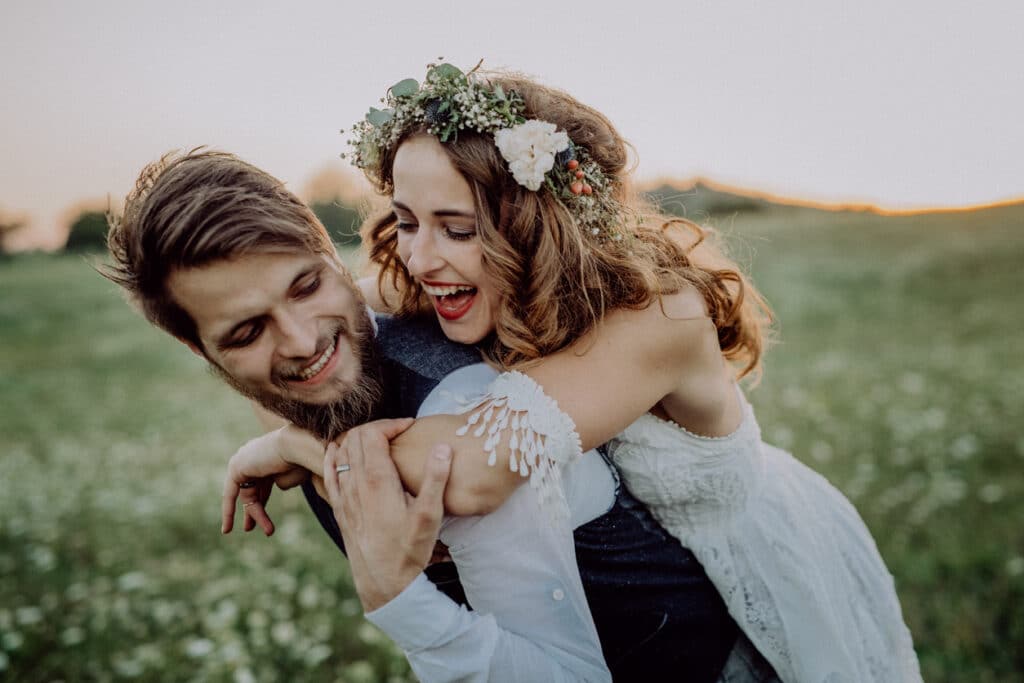How to Handle Wedding Budget Planning Like a Pro
In an ideal world, couples would have an infinite amount to spend on their wedding day. But the reality is, most soon-to-be-weds have budgetary restraints, with a set sum to cover all aspects of their marriage celebration.
Planning a wedding is an exciting undertaking. So much so, in fact, that it’s easy to get carried away. That’s why wedding budgeting is so important – helping you to enjoy your perfect day without breaking the bank.
To help you plan a memorable celebration that you can feasibly afford, we’ve created this useful guide to wedding budget planning. With tips on allocating expenditure and controlling costs, it’s a need-to-know resource for couples who want to enjoy their dream wedding without fear of overspending.
Quick Links
· Wedding Budget Breakdown: How Much to Spend on What
Wedding Budget Breakdown: How Much to Spend on What
Whether you have £15,000 or £150,000 to spend on your wedding, budgeting is necessary to ensure you can comfortably cover all the bases. For example, it’s no good blowing £8,000 on a wedding dress if you only have £15,000 to spend overall – as those reserves could disappear faster than you would believe.
Happily, there are plenty of tried-and-true formulas to help couples get their wedding budget right. It’s useful to see your budget not as a single pot of cash, but as a series of percentages that need to be carefully allocated to cover every part of your wedding celebration.
So, how much should you be spending on what? While this, of course, differs from couple to couple depending on their preferences and requirements, we’ve included a rough ballpark to demonstrate how categorised wedding budgeting works in practice…

Wedding Budget Breakdown
· Venue, food, and drink – 40%
· Wedding party attire – 15%
· Music or DJ – 10%
· Flowers – 10%
· Photography – 10%
· Decorations – 5%
· Transport – 3%
· Invitations and stationery – 3%
· Wedding favours – 2%
· Wedding cake – 2%
So, this budget example provides ballpark percentages of how much money you should be allocated to cover different elements of your wedding. Depending on your priorities and preferences, you can adjust these figures as you see fit.
For example, some couples may prefer to spend more on wedding attire, while others would allocate more to secure their dream venue.
Using the above percentage allocations, here’s a breakdown of how much you should typically look to spend on key items based on a wedding budget of £50,000…
· Venue, food, and drink – £20,000
· Wedding party attire – £7,500
· Music or DJ – £5,000
· Flowers – £5,000
· Photography – £5,000
· Decorations – £2,500
· Transport – £1,500
· Invitations and stationery – £1,500
· Wedding favours – £1,000
· Wedding cake – £1,000
Allocating individual percentage pots to different elements of your wedding day may seem a little joyless, but it’s the perfect way to ensure you don’t overspend in some areas while neglecting others. It also underscores the need to set a total budget early; that way you won’t overstretch yourself and be forced to compromise later.
How to Track Your Wedding Budget
Keeping tabs on your wedding budget is crucial to controlling spend and making sure you have enough left in your pot for those last-minute or forgotten-about essentials. No newlyweds want to begin married life worrying about finances, so taking an organised approach to wedding budgeting is always sensible – even if it does sound a little unromantic.
The question is, what’s the best way to track your wedding budget? And are there any tools and applications that can help make the process easier to manage?
Below, we take a look at some of the ways to track and manage your wedding budget.

Dedicated Wedding Budget Tracker Apps
These days, there’s a smartphone app for everything, and that includes planning and budgeting your wedding. Budget tracker apps do everything that a Microsoft Excel spreadsheet can do, whilst offering additional features that put you in complete control of your budget.
Here are a few tools that may be of interest:
· Bride Magazine Wedding Budget Tracker – with customisable lists and a handy tool that suggests a breakdown of costs based on your budget, this is one of the most sophisticated budget trackers on the market.
· WeddingWire – if you want to keep tight control of your wedding finances, look no further than WeddingWire. This advanced wedding planner tool takes budgeting to a new level, with multiple expenses streams that track paid and pending purchases.
· Hitched – developed specifically for smartphones, the Hitched App is great for controlling your wedding spend on the move. Analyse expenses and keep track of payments, all through an intuitive app on your phone.
Wedding Planner
Given the work involved in organising a marriage celebration, many couples are turning to wedding planners to hammer out the minutiae of their big day. This may sound like an expensive option, but it’s worth remembering that there are different types of wedding planners out there, so using their services might not cost as much as you think.
While some wedding planners take the reins and organise every aspect of your day, others focus on key areas – including budget. That’s right, you can utilise the services of a wedding planner to help control your budget alone, which may be a cost-effective way to remove some of the stress out of your wedding planning.

Top Tips and Things to Consider for Wedding Budgeting
Now that we’ve covered the basics of wedding budget planning, here are some essential hints and tips on how to make your money go further:
· Always consider your priorities – whether you’d prefer your dream dress or a fairy-tale venue, you need to think carefully about your priorities and be willing to compromise in some areas to achieve what you want.
· Be realistic with your guestlist – guest expenses account for a large part of your overall budget, so if you’re looking to save, it may help to trim down your guestlist to your nearest and dearest.
· Any flexibility on dates? – these days, weddings happen all year round, so if you can accept getting hitched out of the peak summer season, you could save big on your venue and other services.
· Choose in-season flowers – typically, flowers account for 10% of your budget, so if you want to get the best blooms for your money, opt for in-season varieties. Because they’re prevalent, they’ll be more affordable, so you’ll essentially be getting more flowers for your money.
· Always stick to your original budget – there’s something wonderfully satisfying about achieving your perfect wedding day within your original budget, so try to stick to it where possible. Overspending here and there may not seem like much, but it could cause stress down the line.
We hope this guide to wedding budget planning helps you organise your dream day. Providing exclusive wedding packages in the heart of Cheshire, The Mere caters to many budgets and requirements, with suites accommodating 60 to 500+ guests. For more information or to learn more about our wedding packages, click here or call our team on 01565 830155.